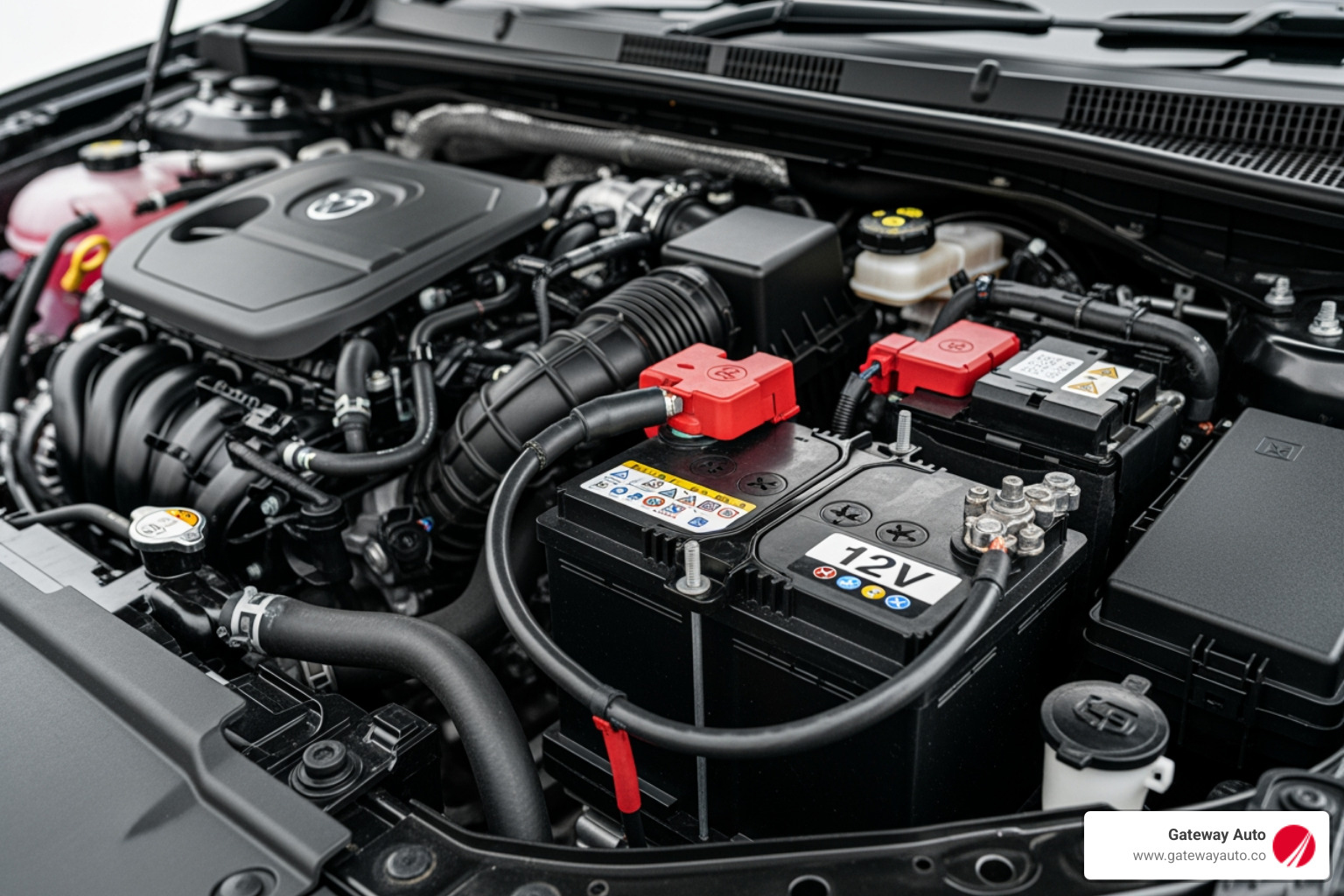Bad Auto Transport: How It Can Increase Your Automotive Care Costs
Transporting a vehicle isn’t just about getting it from point A to point B; it’s also about trust and reliability. Imagine eagerly waiting for your new car to arrive, only to be met with delays, unexpected fees, or worse—damage to your vehicle. This common scenario highlights the importance of choosing a quality auto transport service. A poor choice can lead to spiraling automotive care costs that leave you frustrated and out of pocket. With seemingly endless options available, knowing what to look for and what red flags to avoid is essential. Let's dive into how ensuring a positive transport experience can save you time, stress, and money in the long run.
Bad auto transport can lead to increased automotive care costs through factors such as delayed pickups, communication issues, and service quality failures, which can result in additional fees for repairs or urgent shipping. Effective planning and choosing a reliable carrier are essential to avoid these pitfalls and ensure a smooth transport experience.

The True Cost of Poor Auto Transport
Poor auto transport services can significantly affect your finances, often in unexpected ways. For those who may think they are saving money by choosing a low-cost carrier, hidden fees and complications can surface that overshadow any initial savings. A prime example is when a customer faced additional storage fees due to delayed pickup; this individual unknowingly found themselves on the hook for an extra $500 simply because the transporter didn't make it on time.
This situation isn’t uncommon. According to the Better Business Bureau, consumer complaints regarding auto transport services have surged by 25% over the past year according to leading door to door car transport company A1 Auto Transport. Many complaints arise from hidden fees, vehicle damage during transport, or delayed deliveries, creating a ripple effect of expenses and stress. Notably, 15% of individuals report significant damage to their vehicle throughout this process, with repair costs averaging about $1,500. These figures illustrate just how vital it is to prioritize quality over cost when selecting a transport service.
The immediate allure of lower quotes can lead to a disheartening reality filled with unforeseen expenses. For instance, what might seem like a minor discrepancy in shipping costs quickly magnifies into substantial financial burdens stemming from late deliveries or even theft—instances where personal belongings left unsecured during transport could amount to losses upwards of $1,000. Making a hasty decision based solely on price risks unintended consequences.
Navigating the intricate landscape of auto transport requires careful thought and diligent research. Opting for reputable companies may involve slightly higher costs initially but could save you heartache—and money—down the line. It’s worth taking the time to compare multiple quotes and read reviews to avoid becoming part of that alarming statistic of dissatisfied customers.
Furthermore, the toll doesn’t end with monetary loss; heightened anxiety surrounding vehicle condition and potential lack of security adds pressure when dealing with unreliable carriers. Average delays for poor transport services hover around five days, aggravating already stressful situations such as relocations or purchases of new cars requiring timely delivery.
As you navigate your options, consider taking proactive measures by vetting carriers and seeking out transparent pricing models that protect you against hidden fees while ensuring responsive communication throughout the transporting period.
With these challenges in mind, understanding how to identify unwanted complications is key to securing a reliable transport experience.
Identifying Unreliable Transport Companies
When choosing an auto transport service, you should be vigilant about certain warning signs that can indicate a less-than-reputable company. One of the first things to consider is the company’s licensing and insurance status. This information is essential because it serves as a guarantee that the transporter adheres to federal regulations.
Always check if the business holds a valid Motor Carrier number registered with the Federal Motor Carrier Safety Administration (FMCSA). If they can't provide this information upon request, it's a strong indication that you should look elsewhere.
Moreover, taking a moment to peruse customer reviews on platforms like Yelp or the Better Business Bureau can reveal valuable insights. Look for patterns in reviews—if numerous customers cite delayed deliveries or mention experiences of unexpected charges, then that company may not deliver the quality you deserve. It’s crucial to pay attention to these red flags rather than dismiss them as isolated incidents.
Another factor to be cautious about is the quotes you receive from different companies. If one company presents a quote that appears significantly lower than competitors, it could be an attempt to draw you in with unrealistic pricing. While everyone loves a good deal, such lowball offers often hide extra fees or lead to subpar service quality. Remember: you get what you pay for, and selecting the cheapest option may cost you more in the long run.
"Inadequate communication from a transport company can unveil bigger issues down the line."
Last but certainly not least, communication can be an excellent litmus test for reliability. If a transport company doesn’t respond promptly to your inquiries or provides vague answers, don't ignore those cues. Effective customer service is essential for ensuring a smooth transport experience; it reflects how the company operates as a whole. After all, if they can't manage timely communication before you've signed a contract, what can you expect during transport?
Keeping these considerations in mind will help ensure that you steer clear of unreliable transport companies and protect yourself from unexpected headaches along the way. As we move forward, let's explore specific indicators that highlight declining transport quality.
Signs of Poor Transport Quality
It's not always easy to spot issues until it's too late, but certain indicators can reveal underlying problems with the transport service you're considering. Firstly, observe the state of their equipment—if the trailer looks dirty or unkempt upon arrival, it suggests a lack of maintenance and care. This is more than just aesthetics; dirty trailers can harbor debris that may scratch or damage your vehicle during transit. A well-maintained transporter takes pride in their equipment, understanding that it reflects their dedication to safeguarding your vehicle.
Alongside external appearances, the professionalism of the staff you encounter also speaks volumes about the quality of service.
Unprofessional behavior from personnel should raise red flags. If you find them rude, disorganized, or dismissive during your inquiries, it indicates a culture that prioritizes profits over customer satisfaction. Remember, these are the people who will be handling your valuable asset; if they show no respect or care, why would you trust them to transport your vehicle safely? Your interactions should feel reassuring, not stressful.
This leads us into communication, which is vital for a successful auto transport experience:
- If they are evasive about timelines or quickly change their stories, that’s a huge warning sign.
- Unwillingness to provide updates on the status of your shipment can leave you feeling anxious and uncertain. Effective communication reflects a company committed to high-quality service and reliability.
As one customer expressed, “The driver couldn't speak English well, which made coordinating the drop-off extremely stressful. I was left in the dark about when my car would arrive.” This illustrates how effective communication can ease an already challenging situation.
Paying attention to these early indicators can help prevent future headaches and unforeseen expenses related to transportation issues. Now let’s explore more about the possible hidden costs and damages that come with poor auto transport services.
Hidden Expenses and Potential Damages
The reality is that hidden costs in auto transport can be a wallet drain. Many consumers initially focus on the quoted price for transport itself, only to confront various sneaky expenses popping up along the way. For instance, consider the storage fees. If your vehicle needs to be held before or after transport, these charges can accumulate quickly. You’re not just looking at a one-time fee; it can range from $30 to $50 per day. Just imagine the stress as those days tick by, adding to the overall cost of getting your car where it needs to be.
Additionally, if there's a hiccup in the schedule—perhaps a delay with pick-up or drop-off—you might incur late delivery charges, which can skyrocket anywhere from $200 to $500 depending on how long you're waiting. It's like being caught in a storm without an umbrella—unexpected costs can truly rain on your parade.
- Administrative fees are another hidden surprise many overlook; these are often charged for paperwork processing and typically range from $50 to $100. What starts as an enticing quote can start to feel more like an iceberg—it’s only when you dive deeper that you see what lies beneath.
- Then there’s the specter of damage repairs. If your vehicle gets scratched or damaged during transit (and unfortunately, this is something that happens), you might face repair costs exceeding $1000. This can easily transform your experience from simple transport into a complex puzzle of financial burdens.
Knowing about these hidden expenses in advance prepares you better for the unexpected and allows for effective budgeting.
Protecting Against Damages
While hidden fees present one dimension of financial concern, potential damages during transport pose another significant risk. It is essential to select a reliable carrier that provides comprehensive insurance coverage. In fact, opting for carriers with good reputations can cut down both on potential damage and mitigate any related repair expenses.
Statistically speaking, customers using unreliable companies report vehicle damage at a rate of around 20%, compared to just 5% for those selecting reliable options. Not only does this distinction highlight the impact of your choice of transporter, but it also emphasizes the peace of mind that comes with knowing your vehicle is in capable hands.
Being proactive is key! Whether it's clarifying insurance details when contracting services or staying informed about provisions in case of damage, doing your due diligence will ensure you're more prepared should anything go awry.
By recognizing these financial hurdles in advance, you position yourself better to understand the risks involved—especially concerning the types of damages vehicles often endure throughout transport.
Common Forms of Vehicle Damage
Understanding the potential forms of damage that can occur during auto transport is crucial for car owners. One of the most frequently encountered issues is scratches and dents; in fact, about 30% of vehicles transported experience these minor blemishes. This damage usually arises from poorly maintained equipment or careless handling during transit. Even the tiniest scratch can be an eyesore, potentially leading to rust if left untreated.
Another significant issue involves broken mirrors and windows, which can stem from inadequate securing methods. When a vehicle is not properly fastened, it risks bouncing around during transport, resulting in shallow yet damaging impacts. Broken mirrors and windows are not only inconvenient but also pose a safety hazard once the vehicle is back on the road.
Additionally, underbody damage is a serious concern that often goes unnoticed until it's too late. Improper loading or unloading practices can harm the car’s undercarriage, which is essential for maintaining structural integrity. This type of damage can lead to costly repairs and may even affect the performance of your vehicle over time.
It's important to understand that even more severe mechanical issues can arise from mishandling during transit. About 10% of vehicles suffer mechanical problems post-transport, impacting crucial systems like the engine or transmission. These issues typically stem from improper loading techniques or negligence while maneuvering the vehicle onto or off the transport truck.
For example, one unfortunate customer faced a $3,000 bill to fix mechanical damages reportedly incurred when their car was improperly loaded onto a transport truck. Such alarming costs serve as a wake-up call to all vehicle owners about the meticulous nature required for auto transport.
Recognizing these forms of damage can guide you in taking necessary precautions to protect your investment. By documenting everything carefully and choosing reputable companies, you can help ensure your vehicle's safety throughout its journey.
Tips for Choosing a Reputable Transport Service

When navigating through the myriad of auto transport companies, knowing which ones stand out can be challenging. There are several strategies to help you sift through the options. One of the first steps in ensuring that you choose a reputable service is to verify their credentials. A legitimate company will be registered with the Federal Motor Carrier Safety Administration (FMCSA). You can easily check their USDOT number, which serves as a unique identifier for companies engaged in interstate commerce. This verification helps guard against scammers and ensures that you're dealing with a licensed entity capable of providing safe transportation.
Building on this foundation, it's also wise to get multiple quotes before making any decisions. By collecting several estimates from different providers, you gain a clearer understanding of available services and their reasonable costs. However, exercise caution; if a quote appears unusually low, it could indicate hidden fees or poor service quality lying beneath the surface.
In addition to quotes, take time to read reviews about potential companies. Customer feedback can reveal invaluable insights into the experiences others have had. Aim for companies boasting high ratings and positive testimonials from verified sources—I often find that platforms like TransportReviews.com provide an honest portrayal of a company's performance through aggregated ratings and comments from various customers.
[QUOTE] “The best recommendation often comes through word-of-mouth, so don’t hesitate to ask friends or family if they’ve had successful experiences with any transport services.”
As you explore your options, don't overlook the importance of personal connections in this decision-making process.
Asking for referrals from people you trust can yield recommendations that may not be easily found online. These personal anecdotes often carry more weight than anonymous reviews and provide genuine insights into how well a company operates. Meanwhile, look for companies that prioritize customer service. Engaging with responsive representatives who are willing to answer questions reflects positively on a company's professionalism and dedication to transparency.
Lastly, always keep an eye on pricing structures. While affordability is important, be cautious—opting for the cheapest service without due diligence could leave you at risk of dealing with unprofessional providers. Companies with reasonable costs should also display professionalism in their communication and operational practices.
Following these tips empowers you with knowledge that translates into tangible benefits during your transport process. A prudent choice enhances your peace of mind, ensures your vehicle's safety, and contributes to an overall positive experience while avoiding unnecessary expenses.
Equipped with these insights, you're now better positioned to make informed decisions that safeguard your investment, which naturally leads us to examine how making quality investments can help prevent future costly mishaps.
Investing in Quality to Avoid Costly Repairs

It's often tempting to choose the lowest bid when it comes to transporting your vehicle; however, this decision can lead to more problems than you might anticipate. Investing a little extra in a reputable transport company ensures that your car arrives safely and prevents potential headaches associated with repairs and hidden fees. Think of it as an insurance policy for your vehicle – a small premium can protect you from costly damages later on.
Several factors come into play when selecting your transport services. Higher-rated companies tend to offer superior equipment and provide comprehensive training for their drivers, which significantly enhances the safety of your vehicle during transit. The difference in care and expertise can protect your investment against costly wear and tear.
For instance, when I opted for a cheaper transport service once, my car arrived with scratches and dings. On the other hand, a friend shared a positive experience with a higher-end carrier that charged about $200 more than budget options. "I was amazed," they said, reflecting on their experience. "My car arrived without a scratch." This shows how paying more upfront led to peace of mind and avoided unexpected repair costs.
Interestingly, studies indicate that opting for low-quality transport services increases the likelihood of experiencing damage by 30% to 50%. Repair costs from such damage can reach anywhere from $500 to $3,000 depending on the extent. In contrast, reputable transport services typically resolve claims much faster, averaging two to four weeks compared to six to twelve weeks with less professional companies. Investing in a quality service protects your vehicle and mitigates stress associated with prolonged damage claims.
Why Quality Transport Services are Worth It
Choosing a high-quality transport service is akin to believing in long-term benefits versus short-term savings. While you may spend slightly more now, you are safeguarding yourself against hidden costs down the road stemming from poor transportation quality. Additionally, the emotional toll of worrying about possible vehicle damage or delays adds needless stress.
Ultimately, it’s crucial to weigh these considerations carefully before making your decision. By prioritizing quality over cost, you're not just choosing a service; you’re investing in the integrity of your vehicle and your own peace of mind.
In conclusion, while saving money is appealing, investing in quality auto transport can prevent significant headaches and expenses later on. Prioritize safety and reliability for the best overall experience.
All your automotive needs under one roof
Gateway Auto offers service, collision, fleet and quality vehicle sales under the same trusted brand to ensure you stay on the road with a team by your side.




